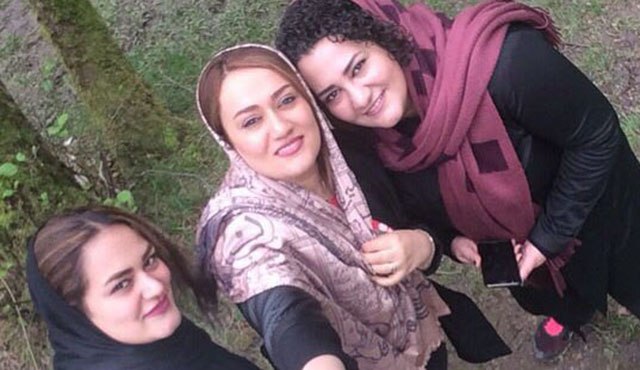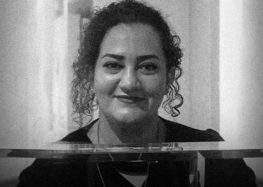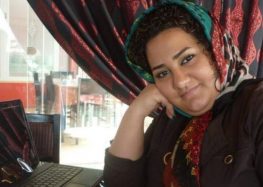Political Prisoner Serving Seven Years Gets Additional 91 Days for IRGC Charges

An additional 91 days were added to civil rights activist Atena Daemi’s seven-year prison sentence for her peaceful activism. The sentence was issued to Daemi and her two sisters after the Islamic Revolutionary Guard Corps (IRGC) responded to her complaint about their use of excessive force with a complaint of their own.
“The strange thing is that when the IRGC makes charges, the authorities quickly prosecute, but Atena filed a complaint against the IRGC for violent arrest and nothing was done,” an informed source told the Center for Human Rights in Iran (CHRI) on April 3, 2017. “In fact, the authorities are now saying that her complaint has been lost.”
“When we asked the judge about her complaint during the trial, he had no clue,” added the source.
The 91-day sentence was issued by Branch 1163 of the Qods Criminal Court, which suspended Onsieh and Hanieh Daemi’s sentences for one year, said the source.
“The defendants were summoned to appear in court on March 12, 2017. On the day of the trial they defended themselves, but apparently the judge did not know who Atena was and had not seen the case file in advance. Two days later, they received a text message from the judiciary that a ruling had been issued, but their lawyer was not informed until he went to the court’s office last week after the new year holiday (beginning on March 21),” the source told CHRI.
“Given the special circumstances of the second and third defendants (Onsieh Daemi and Hanieh Daemi), the court does not believe it would be prudent to carry out the sentences against them and… will suspend them for a period of one year,” said the ruling, according to the source.
Atena Daemi, 29, was arrested on October 21, 2014 by the IRGC’s Intelligence Organization. The children’s rights advocate was sentenced to seven years in prison for meeting the families of political prisoners, criticizing the Islamic Republic on Facebook, and condemning the mass executions of political prisoners in 1988.
On November 26, 2016, IRGC agents arrived at her home unannounced, raided it and violently transported her to prison to begin serving her sentence.
“Today… our home was raided even though I was not raping my students, committing extortion, ordering an assassination or running from the law. I was only sleeping! My parents were on vacation,” wrote Daemi in a letter, a copy of which was obtained by CHRI in early December 2016.
The letter added that the plainclothes agents of the IRGC’s Sarallah Headquarters used undue force and pepper spray while arresting her.
“They acted as if they had come to arrest a dangerous fugitive. When asked to produce a warrant, they attacked me. One of the agents, who I’m embarrassed to say was a woman, started to beat me. Then, when my younger sister tried to intervene, she beat her on the chest, too,” wrote Daemi.
Onsieh and Hanieh Daemi, along with Hanieh’s husband, Hossein Fatahi, were previously summoned to appear in court on January 23, 2017 for similar charges in connection with Atena Daemi’s arrest in 2016.
They were accused of “insulting the supreme leader” and “deliberate assault” against IRGC agents, but were acquitted according to a ruling sent to their home on February 15, 2017 by Branch 3 of the Shahid Moghaddas Court inside Evin Prison in Tehran.






